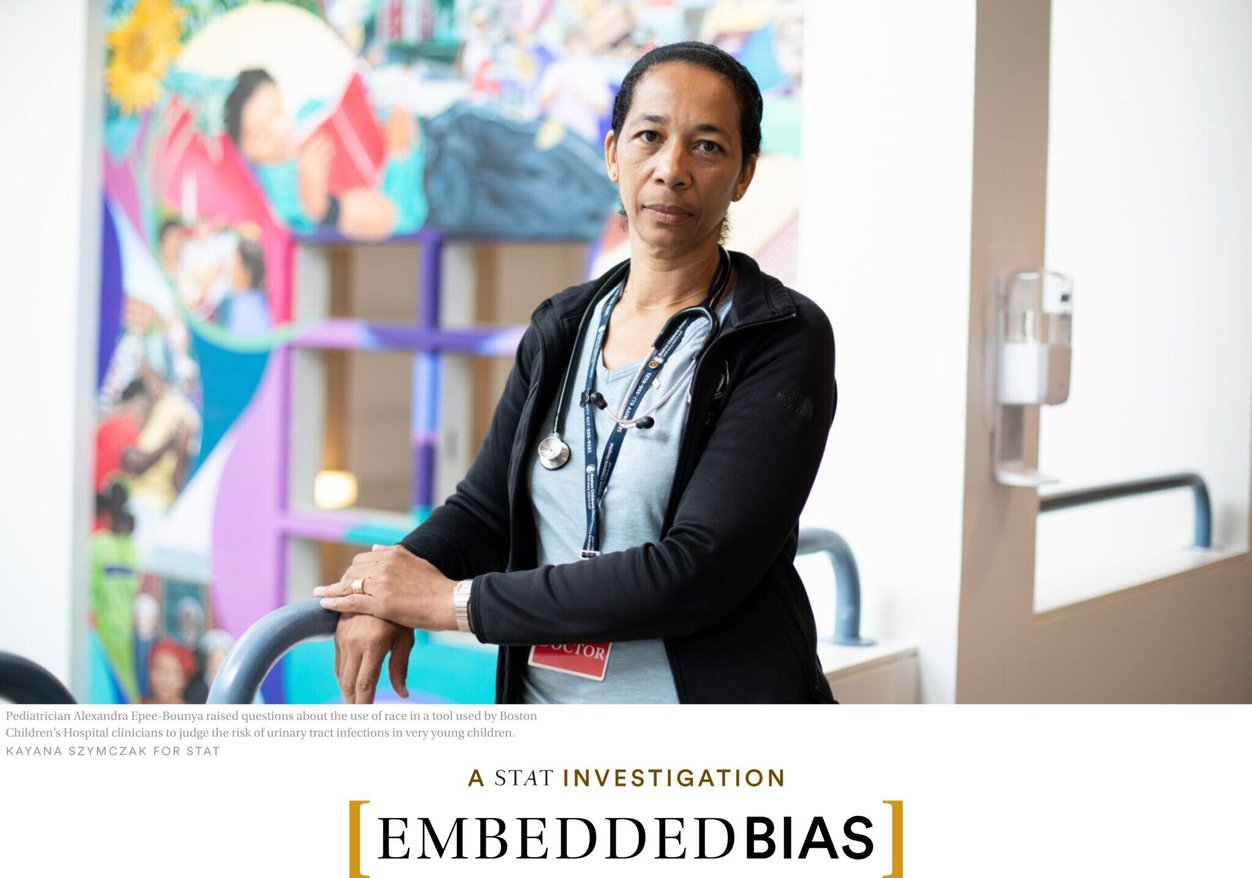stat investigation
Why are race-based algorithms so hard to change?

Doctors use clinical algorithms every day to make decisions about the care they provide to patients. This math determines things like our surgical risk or likelihood of disease using factors such as blood pressure, age, weight, surgical history, and, often, our race. But one of these is not quite like the others — for years, clinicians have pushed back against the use of race in clinical algorithms.
It was a slow, patchwork effort until the use of race in these calculators became a flashpoint in 2020, when the murder of George Floyd ignited a movement for racial justice that rippled into medicine. A NEJM paper published that spring highlighted 13 common examples, catalyzing a sense of urgency throughout medicine to confront embedded bias.
So, how's it going? In a new investigative series, STAT's Katie Palmer and Usha Lee McFarling spoke with more than 100 clinicians and researchers and found a health care system struggling to reassess its scientific and ethical assumptions about race. "The hard part of reporting to understand all their perspectives is the same reason why the problem is so hard to fix," Katie told me about working on the series. "It's really hard to coordinate efforts across so many different groups and institutions."
You can read the first story in Katie and Usha's series today, about how all of medicine relies on these tools that are, as one researcher put it, built on a foundation of Jell-O. Keep your eye out for more stories this week.
And after reading the story, you can dive into the weeds of these algorithms in the database that Katie built with STAT's J. Emory Parker, tracking 45 algorithms across clinical fields. You can filter tools by specialty, racial variables, and more.
And! Sorry, one more thing — if you aren't quite ready to dance with the data, might I interest you in an explainer video produced by STAT's Hyacinth Empinado? The video really helpfully explains what these clinical algorithms look like and how race is used in the calculations.
billing
Does something feel off about that medical bill? Survey says: Don't just let it go
If you get a medical bill that you're worried about, you should probably try to fight it, according to new survey data published Friday in JAMA Health Forum. Researchers used nationally representative data from more than 1,100 respondents, about 1 in 5 of whom reported receiving a medical bill that they disagreed with or couldn't afford. About 61% of those people reached out to the billing office to address the concern.
Ask and, often, you shall receive: For those with an unaffordable bill, 75% received financial relief through bill cancellation, assistance, payment plans, or price reductions. Among those who negotiated the price, almost 62% got a price drop.
Why do some people make the call when others don't? "A more extroverted and less agreeable personality" increased a person's likelihood of reaching out, the study authors wrote. On a more serious and systemic note, they found that people who didn't have a college degree, had lower financial literacy, or were uninsured were less likely to make the call.
pharma
A cancer survivor's journey from pharma exec to patient advocate
Kathy Giusti was told she had three years to live when she was diagnosed with multiple myeloma at age 37. She was "scared shitless," as she wrote in a book about the experience. But almost three decades later, Giusti is thriving. She brought an executive's energy to her own care, changing the way medicines for multiple myeloma are developed in the process.
"We would not be where we are today in the treatment of multiple myeloma without Kathy's leadership," said Richard Pazdur, the FDA's top oncology regulator. In 1998, just two years after her diagnosis, Giusti founded the Multiple Myeloma Research Foundation. The group has raised more than $600 million for research, launched nearly 100 clinical trials, and helped bring more than 15 new drugs to market. By 2004, the five-year survival rate for the disease had increased from 33% to 61%, according to the MMRF.
Read more in STAT+ from Matt Herper on how Giusti changed drug development.


No comments